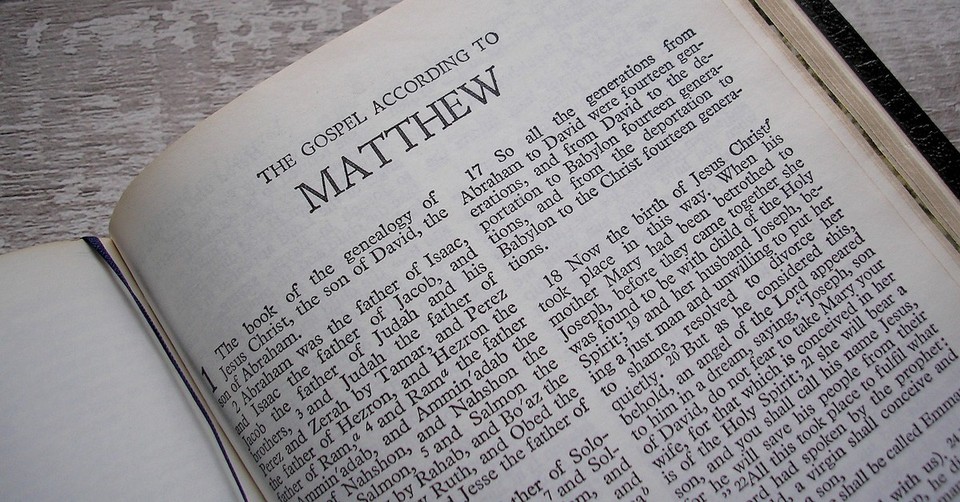4 Reasons We Should Accept the Gospels as Eyewitness Accounts

In the movie, God’s Not Dead 2, I was asked to defend the historicity of Jesus and the eyewitness reliability of the Gospels. Many skeptics reject the eyewitness authority of the Gospel accounts, even though the early Church selected and embraced the canonical Gospels based primarily on the eyewitness authority of their authors. Some critics even argue the Gospels were never intended to be seen as eyewitness testimony, in spite of the fact the earliest students of the apostles (and first Church leaders) repeated the content of the Gospels in their own letters, affirming the eyewitness status of their authors. As a cold-case detective who examines eyewitness accounts every day, I investigated the accounts in my book, Cold-Case Christianity; A Homicide Detective Investigates the Claims of the Gospels. My investigation led me to conclude the New Testament gospels should be considered eyewitness accounts for four reasons:
1. Eyewitness Authority Was Affirmed by the Gospel Authors
The authors of the Gospels proclaimed their authority as eyewitnesses (or as chroniclers of the eyewitnesses), and the earliest believers embraced the traditional authorship of the eyewitnesses. The Gospel authors (and their sources) repeatedly identified themselves as eyewitnesses:
For we did not follow cleverly devised tales when we made known to you the power and coming of our Lord Jesus Christ, but we were eyewitnesses of His majesty.
This is the disciple who is testifying to these things and wrote these things, and we know that his testimony is true. And there are also many other things which Jesus did, which if they were written in detail, I suppose that even the world itself would not contain the books that would be written.
Inasmuch as many have undertaken to compile an account of the things accomplished among us, just as they were handed down to us by those who from the beginning were eyewitnesses and servants of the word, it seemed fitting for me as well, having investigated everything carefully from the beginning, to write it out for you in consecutive order, most excellent Theophilus; so that you may know the exact truth about the things you have been taught.
2. Eyewitness Authority Was Confirmed by the First Believers
The early believers and Church Fathers accepted the Gospel accounts as eyewitness documents. Papias, when describing the authorship of the Gospel of Mark, for example, said, “Mark, having become the interpreter of Peter, wrote down accurately, though not indeed in order, whatsoever he remembered of the things said or done by Christ.” In addition, Papias, Ireneaus, Origen, and Jerome affirmed the authorship of Matthew’s Gospel by the tax collector described in the account, written for the Hebrews in his native dialect.
3. Eyewitness Authority Was Foundational to the Growth of the Church
The eyewitness authority of the Apostles was key to the expansion of the early Church. The apostles were unified in the manner in which they proclaimed Christ. They repeatedly identified themselves, first and foremost, as eyewitnesses:
Acts 2:23-24, 32
“This man (Jesus) was handed over to you by God’s set purpose and foreknowledge; and you, with the help of wicked men, put him to death by nailing him to the cross. But God raised him from the dead, freeing him from the agony of death, because it was impossible for death to keep its hold on him… God has raised this Jesus to life, and we are all witnesses of the fact.”
4. Eyewitness Authority Was Used to Validate New Testament Writings
Even Paul understood the importance of eyewitness authority. He continually referred to his own encounter with Jesus to establish the authenticity of his office and writings. Paul also directed his readers to other eyewitnesses who could corroborate his claims:
1 Corinthians 15:3-8
For I delivered to you as of first importance what I also received, that Christ died for our sins according to the Scriptures, and that He was buried, and that He was raised on the third day according to the Scriptures, and that He appeared to Cephas, then to the twelve. After that He appeared to more than five hundred brethren at one time, most of whom remain until now, but some have fallen asleep; then He appeared to James, then to all the apostles; and last of all, as to one untimely born, He appeared to me also.
The Gospels were written as eyewitness accounts within the long and rich evidential tradition of the early Christian community. The early Church placed a high value on the evidence provided by Jesus and the authority of the apostles as eyewitnesses. The Gospels were accepted and affirmed due to their status as eyewitness accounts. This authority was inherent to the Gospels, commissioned by Jesus, affirmed by the Gospel authors, confirmed by the first believers, foundational to the growth of the Church and used to validate the New Testament canon. There are good reasons to accept the gospels as eyewitness accounts.
J. Warner Wallace is a Cold-Case Detective, a Christian Case Maker, and the author of Cold-Case Christianity and God’s Crime Scene. He appeared in God’s Not Dead 2 as an expert witness, making a case for the reliability of the New Testament.
Publication date: April 1, 2016
Image by Scottish Guy from Pixabay
Originally published April 01, 2016.







